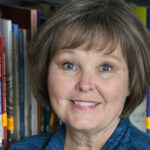From the NCTE Standing Committee on Literacy Assessment
This post was written by NCTE members Kathryn Mitchell Pierce, Chris Hass, and Rosario Ordoñez-Jasis. Kathryn Mitchell Pierce and Chris Hass are members of the NCTE Standing Committee on Literacy Assessment.
During this unprecedented disruption in schooling, we have an opportunity to shift the conversation in ways that help us consider—and balance—multiple perspectives on assessment. How might we use this situation as an opportunity to invite students and families to help us gain new perspectives and practices around assessment?
In Part I, we explored ways to engage students in self-evaluation. Here in Part II, we explore ways to engage families in collaborative assessment of student learning.
Shifting HOME to Family Assessment of Student Learning
Student learning, both processes and products, may be more visible to families with everyone working and learning under the same roof. How might we use this as an opportunity to explore the ways families see their students’ work? What if we extended invitations to caregivers such as:
- How is your student adjusting to the social/emotional challenges of learning from home? (Are My Students Okay?)
- What do you notice about how your student uses reading, writing, and creating in day-to-day life at home?
- What changes do you notice in the ways your student engages with virtual/digital reading and writing tasks while learning at home?
- Learning at home requires some habits and routines that are different than learning at school. What habits and routines seem to come easily to your student? What new routines might make learning at home more productive?
- Which non-school related activities does this student seek out during these extended periods at home?
Literacies are impacted by context, relationships, and experiences. The insights from family perspectives can expand our understanding of the literacies and literacy-learning experiences our students have. Equipped with this information, we can celebrate new aspects of literacy learning and begin to help students build bridges between in-school and out-of-school literacy practices. Listen to teachers Nozsa Tinsley and Tiffany Palmatier share their experiences learning from families.
Once students are able to return to schools, we can continue to invite families to join us in shaping new perspectives on assessment. (See more ideas about how to do that here.) Listen to Tim O’Keefe discuss his invitations to families and the ways he uses the information students’ out-of-school literacies to shape in-school learning.
Consider how we might reimagine collaborative assessment if we invite caregivers to tell us what they use at home to monitor their student’s progress, to share with us the evidence they use to determine how their student is growing as a reader/writer and a consumer/producer of digital texts.
Teachers may want to use this list of invitations as a base for shaping more collaborative conversations with families, and for using this information to inform our instruction. (Additional invitations, examples, and vignettes may be found in the book Going Public with Assessment: A Community Practice Approach, particularly Part II Teachers Collaborating with Families and Communities.)
These invitations communicate our respect for family perspectives. “HOME” work shifts from families trying to replicate what teachers do—to teachers using this rich source of information that only students and families can provide to create curriculum and assessments that are more equitable and inclusive. Changing the conversation has the potential to change the ways we engage with families and the ways we define the literacy learning that really matters in our schools and communities.
Tell us how we can help you change the conversation on assessment with your assessment stories here.


Kathryn Mitchell Pierce works with graduate and undergraduate teachers at Saint Louis University, Missouri. Chris Hass is a second- and third-grade teacher at the Center for Inquiry in Columbia, South Carolina.
 Special thanks to Rosario Ordoñez-Jasis at California State University-Fullerton, for her contributions.
Special thanks to Rosario Ordoñez-Jasis at California State University-Fullerton, for her contributions.
It is the policy of NCTE in all publications, including the Literacy & NCTE blog, to provide a forum for the open discussion of ideas concerning the content and the teaching of English and the language arts. Publicity accorded to any particular point of view does not imply endorsement by the Executive Committee, the Board of Directors, or the membership at large, except in announcements of policy, where such endorsement is clearly specified.

